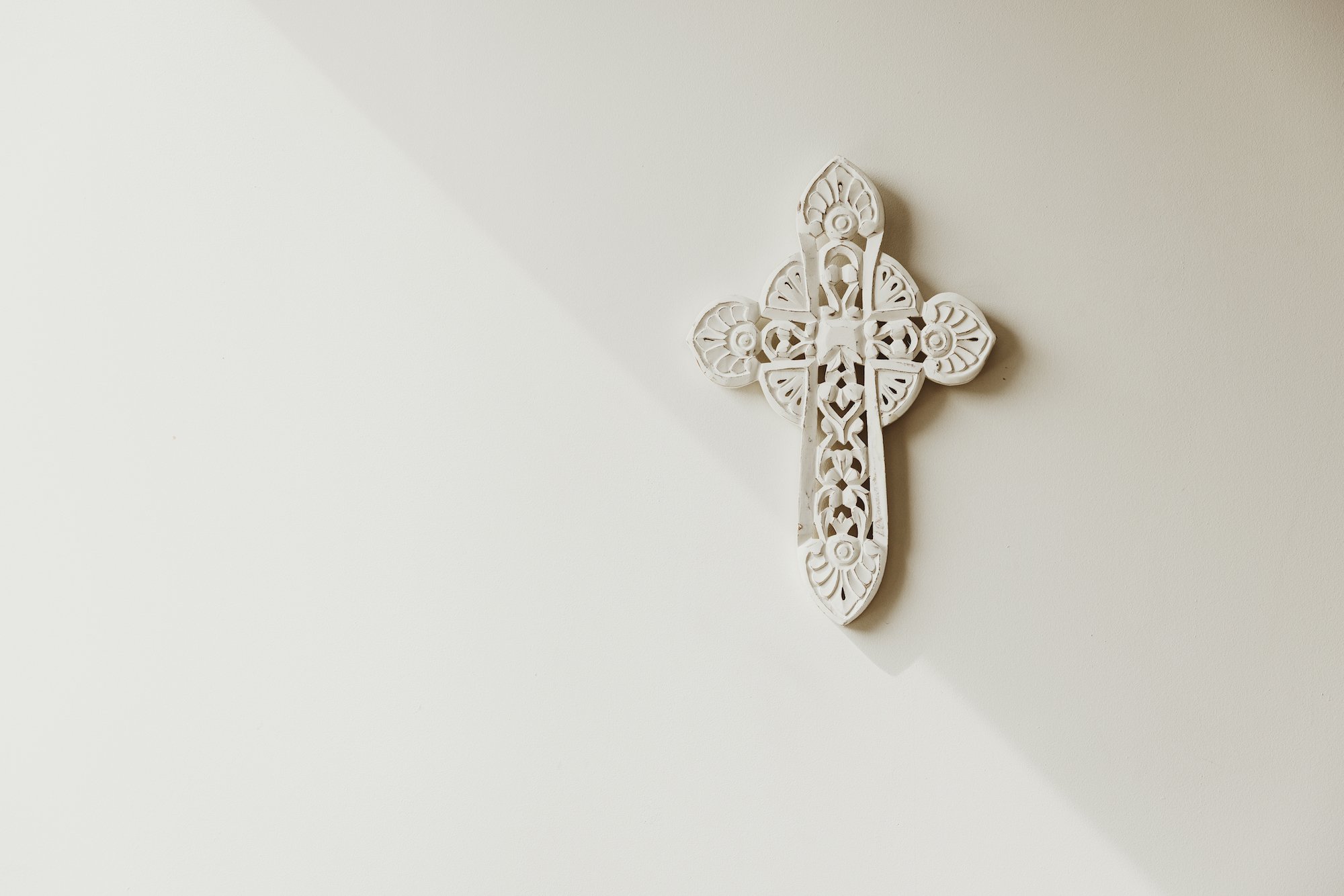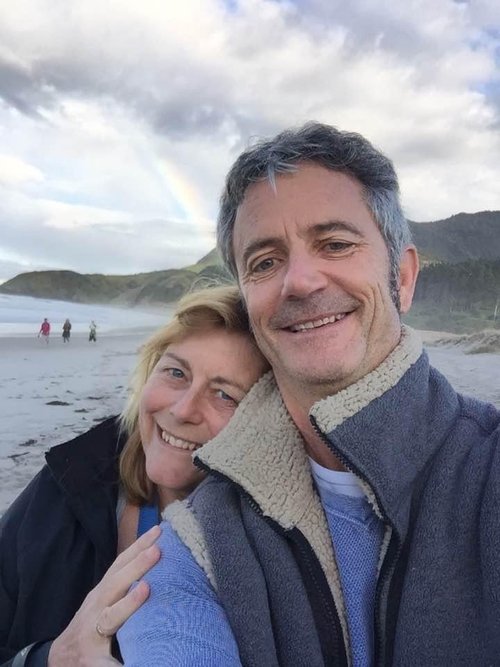The Priest Who Limped | An interview with spiritual director Iain Gow about his first novel.
An SGM Interview with Iain Gow
’The Priest Who Limped’
Iain Gow is a spiritual director, a retired Anglican priest and an author of books that explore the nexus of faith and life - in all of its glorious messiness! He lives in Warkworth with his wife Linda and Nutella, a chocolate brown labradoodle. There he pursues his new vocation as a writer and continues in contemplative postures and practices. In this blogpost, Kathryn Overall-Cass has a conversation with Iain about his third book, and first novel ‘The Priest Who Limped’.
Iain, how would you describe your novel, ‘The Priest Who Limped’ to the contemplative community in Aotearoa, New Zealand? ?
The Priest who Limped – A Tale of Grace is my third book and first novel.
The main character is Rev Jack McQuarrie. The journeys of life have left him with a metaphorical limp. Now in his autumn days, he tells of his sorrows and joys, his failures and successes, the tenderness and tensions of family life, and a quest to remain true to his calling as he befriends faith and doubt along the way.
He is deeply anchored in the contemplative tradition, living out his life as it is marked by moments of fragility and joy; visited by moments of deep Grace.
The story takes place in South Africa, the UK and New Zealand and there are numerous vignettes on contemplative life and prayer.
Who might most connect with this book?
Anyone interested in the journey of faith and life. More specifically, it is for those who recognise in their own lives, the various metaphorical limps they have known. The book is not full of easy platitudes, but I hope readers come away thinking, “all can be well in Christ, even if it is not all well”! The story is redemptive, and in my mind the best stories or movies are those where Grace is at work, and redemption is seen.
It’s also a story of vocation, and takes an honest look at the gifts and challenges of remaining true to a priestly calling. Readers who are priests, ministers or leaders might particularly relate to Jack’s struggles and joys.
Your novel has been described as biographical fiction. What was the process of writing it like for you?
This story flowed easily and generously from my heart. ‘Write what you know’, as the old adage goes. And that’s how a novel should be - drawn from life, but full of marvellous imagination too.
The novel is written through my lenses, lenses of my faith and life. One of the challenges was how much of my own life to place into the book. I wanted to preserve the confidentiality of my family at one level, but I also wanted it to be searingly honest about the human challenges we all face.
Book Launch at Warkworth Library
Some of the stories we as a family have experienced and some of the stories the McQuarrie family experience are different, but many are the same. Depression has been a deep theme in my life, and that is echoed in the experiences of my main character.
My own life has known great beauty, and alongside that, moments of profound human despair. So, in that sense, The Priest Who Limped is my story – but it is also your story, as you too will have known the need for grace along the way.
In what ways does Rev Jack McQuarrie’s story echo the spiritual themes of your own life?
The seeds of our growing humanity often germinate in the trials of our lives, if we open ourselves during those times. If we do this, paradoxically, we may well discover a newer and fuller life than we knew before. That is my story and that is Jack McQuarrie’s story, that both of us discover a reason for hope.
Are you practising as a spiritual director currently? What are the gifts of that?
At different times in my life as a spiritual director, I have had many directees and then at other times, I have had long stretches of none. At the moment I am practising as a spiritual director, and the gifts of that for myself are discerning where God might be in the present.
My novel opens with Jack facing cancer and reflecting on his life. In a strange case of life imitating art, I have just recently been diagnosed with cancer myself (fortunately caught early so options available). What I learnt and experienced in my two years doing the SGM Spiritual Direction Formation Programme is invaluable for this new challenge I face.
As I look back, I’m aware of many gifts the programme gave me that that continue to enrich my life. Here are a few that come to mind.
The Spiritual Directors Formation Programme:
Helped me to be aware of the all-embracing love of God, both through the various modules, and by the way it was taught.
Stretched me by teaching me new ways of praying and listening which I use today
Taught me to reflect, ‘If I was giving direction to someone in this situation what is the most helpful question, I could ask them?’ I then ask myself the same question.
Helped me know I am part of a wider community of followers who make up the contemplative community in New Zealand.
The programme is taught in a non worrying way. It helped my faith grow at the time, and still does today, even though it was many years ago.
You say on your website, “I write as a novice, learning a new vocation.” Can you say more about that?
Well, I have been a priest for nearly 30 years, and so writing is a new calling for me. I feel it as a new calling for it allows me to discover God in the written word, rather than the spoken word, which was my mainstay as a priest, speaking from the pulpit.
I have experienced severe clinical depression at times throughout my life. When this occurs, I cannot speak - the pain is too much, but I find I can still write. So I am grateful for writing as a way of expressing my contemplative life.
I currently do some work in hospice as a chaplain/spiritual carer. Here the main gift for myself is to remember to listen well. It is the same with spiritual direction and writing. I need to listen well…and for that to happen, I need to discover new rhythms. As someone once said to me, “if you do not make time for solitude, then you will not hear the whisper of God for yourself or others”.
What have been the gifts of this new writing vocation?
I find the discipline of writing an anchoring reality in my week and day, and that is helpful for my mental health. My writing practice has become a good friend to me.
Self-discipline is a necessary part of writing, just as it is in life. Writing is a bit like intentional prayer each day. Sometimes we just ‘turn up’ and at other times, there is a bit of rhapsody! Just like prayer at times can ‘feel’ a bit boring, so can be the process of writing!
Writing books has also linked me to good people through the publication process. I have to mention my publisher, Andrew Killick of Castle Publishing – I am not sure my writing has always been a gift to him, but he certainly has been a gift to me! Once he culled 25000 words I had written – I must be verbose!
What practices/postures are supporting you on your contemplative path at present? ?
As I sit on my deck with my hound, Nutella at my feet, I am nourished by the garden and trees and bird-song that surrounds me in our rural setting. I often engage in the spiritual practice of weeding!
I attend to the practise of ‘being silent’ for a period of time each day. At the moment, I discover a season where this discipline is quite boring as a medium of prayer, but I know I need to stick with it. To complement this period of dryness in my prayer life, I engage in the spiritual discipline of gratitude. This is what I practise at the moment.
Where can people find out more about your new novel, and earlier books?
My website, kindly crafted by Kathryn Overall-Cass over many hours is: www.iaingow.nz. There are details about my books there, and options to purchase either via Amazon, or directly from me.
My email is gow.iain@yahoo.com. I would love to hear from you.








